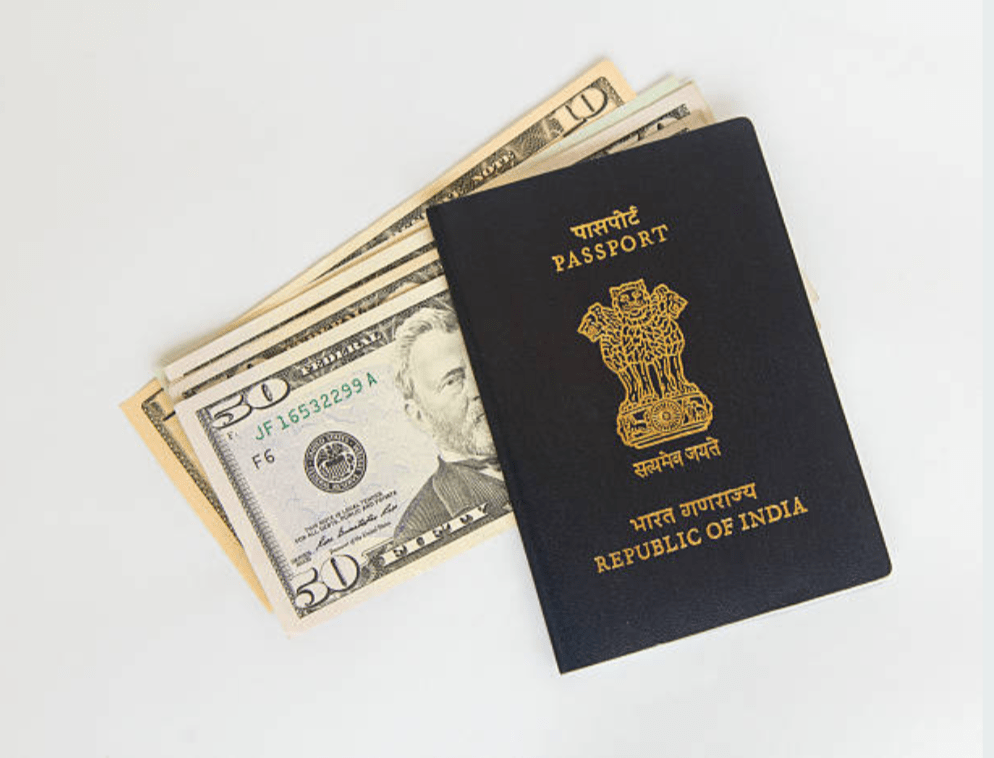As an NRI, managing your finances between Indian rupees and your foreign currency might get difficult. More so when you have been living abroad for a long time and you have dependents in India. The old savings/current account has to be converted into an NRO (Non-resident external) account, and you may open up other NRI accounts for your benefit.
The major types of NRI accounts available for a non-resident are:
- Non-Resident External (NRE): This account lets you keep your freely repatriable foreign funds in INR. The main source of funds transferred to this account should be your earnings from abroad, and any income generated in India is not easily accepted. You can hold this account as a normal/current account or a fixed/recurring deposit account. The principal and interest generated are both tax-free in India. Funds in the NRE account can always be freely repatriated (remitted outward), to foreign countries.
- Non-Resident Ordinary (NRO): NRO accounts are maintained in rupees and they accept foreign funds as well as legally earned income in India. This account can also be maintained as a current/savings or as a fixed/recurring deposit. Funds are not freely repatriable, and a lot of documentation and proof of sources are required before they can be transferred to your NRE account or abroad. TDS is applicable for this account.
- Foreign Currency Non-Resident (FCNR): This is a deposit account held in a foreign currency (Dollars, Euro, GBP, JPY, Dinar, etc). The interest rates of FCNR deposits and the currency accepted varies with different banks.

Other than these there are some other specialized accounts like Resident Foreign Currency Accounts (RFC), Portfolio Investment Scheme (PIS), etc. Now that you have a fair idea about the NRI accounts that banks offer, here are some advantages of them you should know as well:
Ease of Repatriation
Both NRE and NRO accounts allow easy repatriation of funds. With NRE accounts, your funds can be easily and freely remitted outward to your foreign bank accounts. Repatriation from NRO accounts are limited to an amount of $250,000 in each financial year per individual as per the Liberalized Remittance Scheme (LRS). This is valid for NRO to NRE money transfer as well.
You May Also Check Out:
Tax Benefits
NRI accounts enjoy certain tax benefits that are not given to a resident citizen. The entire money in your NRE account is tax-free in India provided the proper taxes have been paid in the foreign country. The principal and interest in your NRE savings and fixed deposit accounts are not liable to tax deductions. The same cannot be said however for the NRO account as TDS is deducted. However, an NRI can submit the DTAA (Double Tax Avoidance Agreement) to the bank to decrease the tax charged on his NRO account. After paying appropriate taxes, the funds in NRO can be transferred to NRE for easy repatriation.
Deposits in Foreign Currencies
NRIs can enjoy the benefit of having deposit accounts in foreign currencies to save from rupee-value fluctuations. Deposits are available in most major foreign currencies (GBP, Euro, Dollar, JPY, AED, AUD, CAD, etc.) with interest rates varying between banks. This particular type of deposit is called FCNR. Interest earned on these FCNR deposits is tax-free in India.
Average Monthly Balance Requirement
Like all other Bank accounts in India, a minimum sum of money is required to be present in your account. This is called the average monthly balance and varies from Rs. 5,000 to Rs. 10,000 depending on the city and town you hold the account it. Premium NRI accounts might require a higher average monthly balance and fixed deposit requirement.
You can also read: How to get maximum benefit from your Credit Cards
Convenience and other benefits
NRI accounts are fairly easy to open and require documentation which validates you as an NRI. Typically a PAN Card, VISA, or Foreign Residence Permit(e.g SSN, Ikama, Green Card, Emirates ID, etc.), Passport, Address proofs are some of the mandatory documents required. The non-resident individual can also open an account sitting abroad, just by filling up the required forms and sending the signed form and required documents via courier to the bank.
You can also appoint a power of attorney to a dear friend or relative who will take care of your banking needs when you are abroad. The power of attorney may sign cheques on your behalf, and do most banking transactions barring closing or opening of accounts.
There is a dedicated team of phone banking and relationship manager support in major banks for NRI clients.
Non-resident individuals also have the opportunity to invest in the Indian stock market, mutual funds, and derivate products. Mutual fund investments can be done directly from your NRE or NRO account while investing in the secondary market (equities) will require you to open a PIS account. There are no restrictions on having multiple Demat accounts but it has to link to a single NRE PIS or NRO PIS account. Forward covers are also available for NRI clients, in which a forward rate of conversion is fixed and there are derivate products available that maximize returns based on forwarding contracts.
Related: Effective personal finance tips resources

